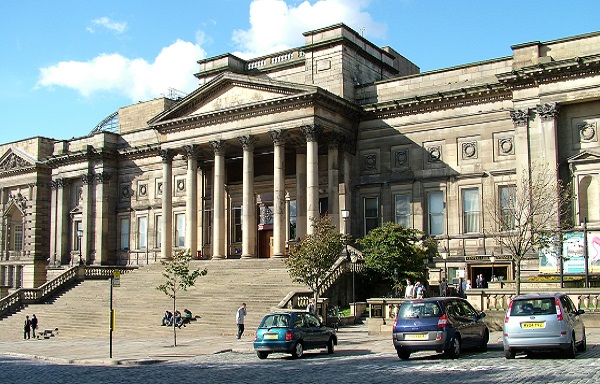
For World Heritage Day 2021, we spoke to History student Hannah Schofield-Lea, currently completing a placement at the World Museum, Liverpool.
The heritage sector, along with most sectors, has struggled through the pandemic and questions raised in 2020. Museums may have been shut but that has not meant that heritage work has stopped. Like most of us, those working in the heritage sector have had to adapt to this online Covid world. Furthermore, a re-focused pressure on British museums to confront items looted during Britain’s colonial past has meant that heritage sites have tried to put different voices in the centre of the narrative. So, for World Heritage Day I caught up with History Student Hannah Schofield-Lea who is completing her placement in the World Museum in Liverpool, researching the items in the Benin display’s past movements, and asked her about her experience working online.
The switch to online has not been entirely detrimental in Hannah’s research of using genealogical data to find the reasons why some artefacts exchanged hands, as she says that most of her work centres on using Ancestry and using other digitised resources. The digitisation of records and documents has allowed more people and historians to have access to information that may have been hidden without. Historians are constricted by the resources that are available, and choices are made by historians and archivists as to what artifacts are worth keeping and using in heritage sector. Not all documents that would help Hannah’s research has been digitised, and her research and conclusions will reflect this. However, the move towards more documents being available to a wider variety of people means that future generations do not have to be limited on the historiographic choices of today, and sources will be more readily available to be interpreted differently. When heritage sites are open again maybe think about what artifacts and arguments are being present and consider why they are there.
What to do with your loot
The questions re-raised in the summer of 2020 put a microscope on how Britain can reconcile its colonial past in heritage sites, and what artifacts can be kept. Hannah’s research on how the items in the Benin exhibit came to Liverpool contemplates this shift in focus. As Zachary Kingdon, the Curator of the African collection at the World Museum states, “museums, as theatres of memory-making and storehouses of ill-gotten colonial props, have much to do in helping to re-examine and counter the violently-fashioned memory-scapes of our colonial pasts.”[1]
Who chooses what history is remembered?
The future of heritage is intriguing, and it feels as if we are at a crossroad in how heritage in Britain is understood and implemented. During my ‘History in Practice’ and ‘Making Heritage Happen’ modules at university I have been able to question my perceived notions on heritage. Who choses what history is remembered and is the digitisation of documents and artifacts going to change the relationships between historians and public? How will museums reconcile their stolen goods? If you are missing museums and heritage sites perhaps see if you can find some digitised documents and reconsider the past that you thought you knew.
[1] https://www.liverpoolmuseums.org.uk/stories/what-do-your-loot-renovating-benin-displays-world-museum
Sophia is an undergraduate student in the department of history.
Discover more
Find out more about studying history at Liverpool.